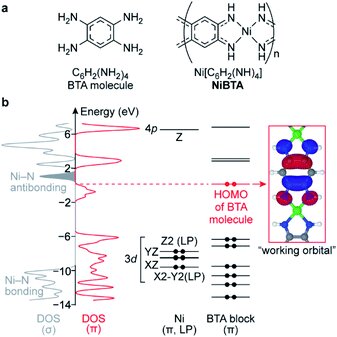The charge storage mechanisms of NiBTA, a recently discovered material that can enable advanced fast-charging batteries, were unveiled by Skoltech researchers with the help of their colleagues from Moscow State University. Their report is published in a scientific journal.

Electric vehicles that suffer from the “range anxiety” issue require fast-charging batteries. Modern battery materials can’t be used for reliable fast charging or can only have moderate energy density. The scientists are motivated to search for new materials that can operate safely under fast-charging conditions and have larger capacities.
NiBTA, a nickel-based coordination polymer derived from benzenetetramine, was recently proposed by researchers. It was not clear how NiBTA was charged and discharged in batteries. The data was too ambiguous to give reliable conclusions, which is why different research groups proposed entirely different mechanisms. In the new work, Skoltech scientists used a combination of advanced methods to gain insights into NiBTA behavior in the batteries.
The author of the study said that the beauty of the work is putting together various techniques, both experimental and theoretical. We were able to track the structural changes inside the batteries with the help of operando X-ray diffract and operando Raman spectroscopy. We were the first to apply a rigorous approach to this class. This study sheds light on the chemistry of coordination polymers, which can be useful.
Read More information
Roman R. Kapaev et al, Charge storage mechanisms of a π–d conjugated polymer for advanced alkali-ion battery anodes, Chemical Science (2022). DOI: 10.1039/D2SC03127B
Read More Latest Chemistry Research News
- Scientists made a step on the way to better therapies against viruses
- Scientists discovered ceramic aerogel for use in thermal insulation applications
- Turning methane into methanol under ambient conditions using light by The ‘holy grail of catalysis
- Scientists discovered A gentler more precise laser cutting technique
- Latest study shows learning chemical networks give life a chiral twist
- According to new research Selective synthesis of meta isomers now possible